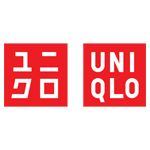According to the Economist Intelligence Unit Worldwide Cost of Living 2021 report, Singapore is the second-most expensive city in the world to live in – and the most expensive in all of Asia. Needless to say, given the country’s very high cost of living rate (especially when compared to the rest of the continent), having a great, well-paying job is essential for survival. For business owners in Singapore, this is a great time to start sourcing talent.
In this article, we’ll show you the steps necessary for hiring local and foreign candidates, understanding Singapore hiring laws, and the best job search websites and platforms for bringing it all together for finding the best candidates in Singapore.
Tips for Hiring the Right Job Candidates in Singapore
Depending on the type of business model your company follows, and the specific parameters of your new employee’s role, you’ll need to follow a few steps to ensure that you are hiring correctly and effectively.
- Before you hire, clearly define your job: Job analysis is essential. This kickoff step allows you to collect information from your internal organization about the roles, responsibilities, expectations, and necessary skills of a particular job. Once you have this information, you can communicate it to recruiters or directly with applicants in your posting.
- Plan a recruitment strategy: Once you have a clearly defined job description, you should set up a recruiting planning meeting with your employees who will be in charge of hiring new staff. This step is usually facilitated by a hiring manager, who is crucial to the planning.
- Put together a hiring checklist: Regardless of whether you are making your first hire, or your 500th, a checklist for hiring any employee helps you to keep track of all your recruiting efforts, saving time down the line.
- Look for the right candidate for the role: It’s possible to be left with a strong impression of a potential candidate for reasons other than their skills or personality. Hiring the right candidate involves checking every “must” off of your list, not just a few.
- Review applications carefully: A cohesive and well-written job description (from you) will make the act of reviewing resumes, cover letters, and job applications all the more effective. Comparing applicants against a list of qualifications, skills, experience, and characteristics means that you’ll be able to have qualified talent come in for interviews.
- Save time by pre-screening applicants: Larger corporations typically have a full HR team who leads pre-screening interviews with candidates over the phone, but if it’s down to you, you’ll find that this step is critical for saving you time––and the time of the applicant. Plus, during pre-screens, you can determine whether their salary expectations align with your job. And if not, there is no need for a future interview.
- Consider holding the job interview somewhere other than your desk: Chances are, you will find that candidates are much more at ease and natural when being interviewed outside of the imposing office environment. You don’t have to take them to lunch, but for a second or third interview, consider a non-conventional setting.
- Be sure to ask the right questions: There’s no better step for gauging a potential hire’s qualifications than in the job interview. Depending on the needs of the role, and how potential answers will gibe with your office’s culture, posing the right question often means the difference between finding an average candidate and a great one.
- Throw in a few curveballs: Without getting too personal, try to think outside of the box––beyond the standard job interview questions. See how potential new hires react to and engage with an unconventional line of inquiry. You’ll usually find that they are more at ease talking about something other than their career.
- Always perform background checks and follow up with references: One of the most crucial steps in the entire process is checking work references––including former managers––educational credentials, employment references, and the criminal history of your preferred candidates. Never skip this final step.
The Best Job Sites for Hiring Job Seekers in Singapore
It’s easier to find the best candidates in Singapore if you’re posting job ads on the right websites. Job boards feature a collection of advertisements from employers in specific industries and regions. These sites make it easy for job seekers to search for openings that align with their interests and qualifications. They also allow employers to advertise jobs to their ideal candidates and fill vacancies faster.
If you’re not sure where to advertise job openings in Singapore, start with these job boards:
GrabJobs is the best option for hiring workers in Singapore. It is a cost-effective recruitment solution that automates sourcing, screening, and interviewing of candidates––and includes over 5,000 companies using the job platform to simplify their hiring process. Auto-generated job seeker profiles mean that users can begin applying for new jobs in under a minute, making it great for employers looking to hire quickly and easily.
Subscription: Free for 14 days; pricing plans
Hiring Focus: All types of workers (blue collar, white collar, remote, entry-level, etc.)
My Careers Future is a recent government initiative that seeks to provide Singaporeans with a smarter way to find work. Employers seeking qualified job candidates create a posting, and MCF’s job matching partners scan potential matches from their talent pool based on skills, work experience, and education.
Subscription: Paid options
Hiring focus: All types of workers (professional, trades, remote, entry-level)
This popular and effective hiring platform allows business owners in Singapore to source, screen, and hire people looking for any type of job from around the globe. Employers can advertise their job position(s) for free by signing up for an account while gaining instant access to a talent pool that includes millions of candidates.
Subscription: Free & paid options
Hiring focus: All types of workers (professional, trades, remote, entry-level)
Another popular global (and free) job search site, Indeed not only places qualified candidates in roles suited to their skills and experience––but also provide crucial tools for jobseekers like salary guides and company reviews. Simply upload your resume to Indeed’s platform and companies reach out to YOU, making the stress of finding work that much simpler.
Subscription: Paid options
Hiring focus: All types of workers (professional, trades, remote, entry-level)
This global online recruitment agency has been sourcing top-tier talent for businesses for over 40 years. Boasting nearly 200 offices worldwide, Michael Page and its team of talent acquisition specialists work just as hard on behalf of employers as they do for employees. And the results speak for themselves.
Subscription: Paid options
Hiring focus: All types of workers (professional, trades, remote, entry-level)
This popular search engine is a default source for many job seekers in the country––which makes it a great marketplace for employers looking for qualified candidates, fast. With JobsDB (affiliated with the popular Asia and Oceania platform, Jora), users can search through career opportunities, all sourced from many job sites from all over Singapore.
Subscription: Free & paid options
Hiring focus: All types of workers (professional, trades, remote, entry-level)
One of the planet’s most popular job search engines for job seekers and employers alike, LinkedIn is a perfect platform for finding full and part-time employees based on trusted connections. It also features numerous tools and subscription-based add-ons that make hiring so simple. As a LinkedIn user, you can either advertise a part-time vacancy with your company for free in your newsfeed or pay to have it reach more users.
Subscription: Free & paid options
Hiring focus: All types of workers (professional, trades, remote, entry-level)
Adecco has been a trusted name in workplace recruitment for decades, and they maintain their prestige by using expert job recruitment agents to pair candidates with positions perfect for them. Famed for their annually published Salary Guides, Adecco has cornered the market by connecting employers and employees in Singapore and providing staffing solutions.
Subscription: Paid options
Hiring focus: All types of workers (professional, trades, remote, entry-level)
Jobstore Singapore helps to connect employers and job seekers using a large base of trusted users from across some of the largest cities and markets in Asia. With offices in more than 10 countries, Jobstore is great for finding qualified talent to fill roles.
Subscription: Free & paid options
Hiring focus: All types of workers (professional, trades, remote, entry-level)
This global job search organization is highly popular in Singapore for candidates looking to enter or re-enter the workforce. Randstad’s team of qualified job search professionals helps connect employers with candidates looking for rewarding and relevant positions in a variety of different fields and industries.
Subscription: Paid options
Hiring focus: All workers (professional, trades, remote, entry-level)
How to Hire Employees in Singapore
Once you have formed a company, you will need to hire employees. These employees can be both foreign and local. When hiring residents of Singapore (including permanent residents and citizens of Singapore) the procedure is relatively simple and there are fewer hoops to jump through, like not having to deal with immigration issues, and no relocation expenses.
Regardless of the type of employee you wish to hire, you will need them to sign an employment contract (also known as an employment agreement, offer letter, or appointment letter). Generally speaking, an employment contract in Singapore must include the following:
- Work commencement date. It can include the probation details as well if they are applicable.
- Details of salary. This must include the basic pay and also the various allowances. Singapore does not stipulate a minimum wage or bonus for employees. However, the EA mandates that the salary has to be paid every month and within seven days of the end of the period. Generally, one month’s salary is paid as a bonus to the employees of Singapore.
- Job and responsibilities profile.
- Working hours. The contract can include provisions for overtime if it is applicable. The provisions made by the EA for employees not working for more than 44 hours a week apply only to the person earning less than $2500 a month.
- Annual leaves. The minimum statutory requirement for annual leave is up to 14 working days. It applies to the workers depending on the duration of their employment. The contract can also include the ways of applying for a leave. The Manpower Ministry stipulates that the provisions for the annual public holidays are followed strictly by all employers in Singapore.
- Sick leaves. The minimum leaves for sickness and hospitalization apply to the employees coming under the EA. If there are to be any sick leaves without pay they should be included in the contract. The EA doesn’t have a stipulation for arranging health insurance for employees.
- Childcare and parental leave provisions. The maternity provisions made for Singapore residents are different from those made for foreign workers. For the locals, they are 16 weeks while for the foreigners this period is 8 weeks.
- Notice period and termination. A resignation or a termination notice must be provided in writing.
- Clauses for confidentiality.
- Laws governing the contract. These contracts are governed by Singapore law.
Understanding Employment Laws in Singapore
The Employment Act, enforced by the Ministry of Manpower in Singapore, applies to both the residents of Singapore and foreign employees. The relationship between the employee and his employer is almost wholly regulated by the contract in Singapore. The primary legislation for governing the employment, hiring, and dismissing the employees is placed under chapter 91 of the employment act. Although both employers and employees are free to place the clauses as they wish in the contract, this contract is subject to some statutory requirements under the Employment Act (EA) and the normal law.
Notably, the definition of an employee according to the EA does not include those who work as domestic workers, seafarers, or who are in executive and managerial positions earning more than $4,500 monthly.
Hiring Foreign Employees in Singapore
The employment of foreigners in the city-state of Singapore is governed by EFMA (Employment of Foreign Manpower). Apart from this, some employment laws in Singapore also apply to foreigners notwithstanding the clauses included in the contract. It includes maternity benefits, compensation for workplace injuries, and childcare leaves for working parents. All foreigners wishing to work in Singapore are required to have work visas granted by the MOM or Ministry of Manpower before they begin their stint working for an employer in the country. These visas can be in the form of an employment pass, an S pass, or a work permit.
- Work permits are issued to workers with basic skills from an approved country. This also depends on the sector in which the worker is going to work.
- A notch above the work permit is the S pass visa and which is issued to middle-level skilled foreign workers such as technicians.
- The most popular visa in Singapore is the employment pass which applies to executives, managerial personnel, and professionals.
Hiring in Singapore without a company registered in the country is possible, however, it is a good idea to recruit the PEO services of an International Payroll company for the process. You have to inform your foreign employees about the process as well, it is recommended to hold meetings online so you clarify to them the documents and the procedures. Use remote interpreting platforms to translate the meeting if needed, so there is no risk of misunderstandings.
How to Hire Employees in Singapore: The Ultimate Guide
Searching for and hiring employees can be an exhausting process due to the sheer amount of labor and micromanagement required. An online recruiting platform like GrabJobs can greatly simplify your entire hiring process. You’ll find features that can easily increase the visibility of your listings, like the ability to duplicate your posts across multiple websites and platforms. Smart recruiters use this, and other add-on features that GrabJobs makes available to smoothen out their hiring process at critical junctures. Considering the base service is completely free, there’s no loss to you at all. Hire smarter today!























